Whatch Everything About Qatar
Please subscribe on "World Guide" channnel on Youtube at youtube.com/c/WorldGuide
Etymology: Where is derived the name of Qatar

The name Qatar is derived from the Arabic name of the country, ad-dawhah literally meaning "the big tree", though it could also refer to a species of local trees that resemble the tamarisk (tamarix species).
Qatar may also refer to the tribe which inhabits the area, and which has given its name to the country.
The capital of Qatar is Doha. The largest city in Qatar is Doha, which has the country's largest population. Al Wakrah and Al Khor are the second and third largest cities in Qatar respectively.
The main highway connecting all main cities of this country is Highway 40 (also known as Dukhan-Fereej Bin Salman Highway). It starts from Dukhan City and ends at Sheikh Jassim bin Mohammed bin Thani Road near Fereej Bin Omran City on the north coast side of Qatar, passing through many cities including Al Shamal Town, Fereej Al Sakhama Town (Kuwai), Ras Abrouq City, Abu Samra City, Mesaieed Industrial Area (Mesaieed), etc...
What are the major areas of Qatar
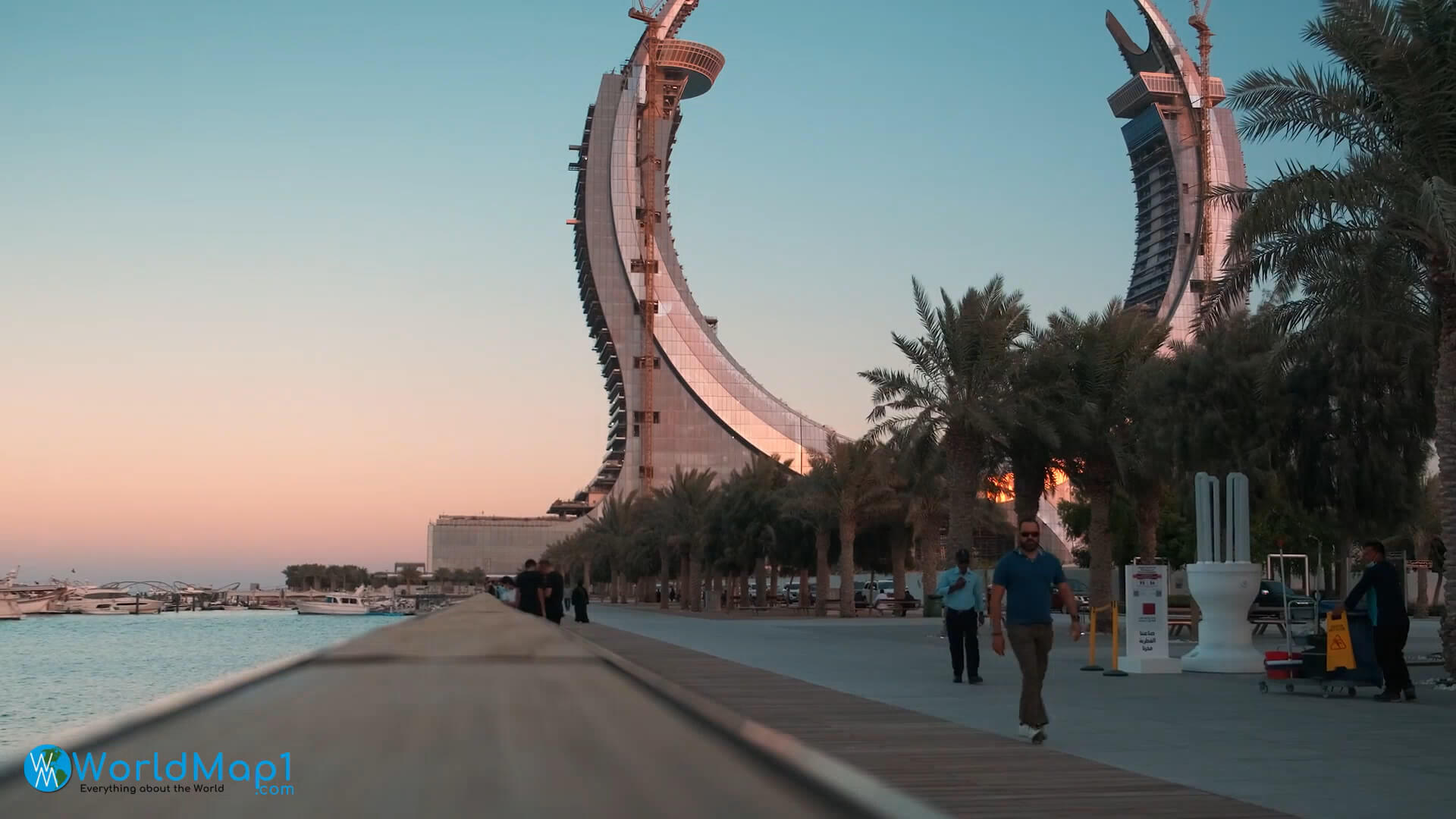
You'll find some of Qatar's best beaches in the following destinations:
Doha - This is the capital city, and Khalifa Street has a number of luxury hotels.
Umm Salal Mohammed - This town is known for its quiet beaches and pristine water.
Al Khor City - Located on an island near Doha, this beach offers access to high-end resorts and fine dining as well as activities like scuba diving, snorkeling, and windsurfing.
Al Wakrah City – Known for its fishing villages and traditional handicraft marketplaces, this city is also home to a popular resort area with luxurious hotels overlooking spectacular white sand beaches.
What is the population of Qatar 2022 - Demographics and Religion
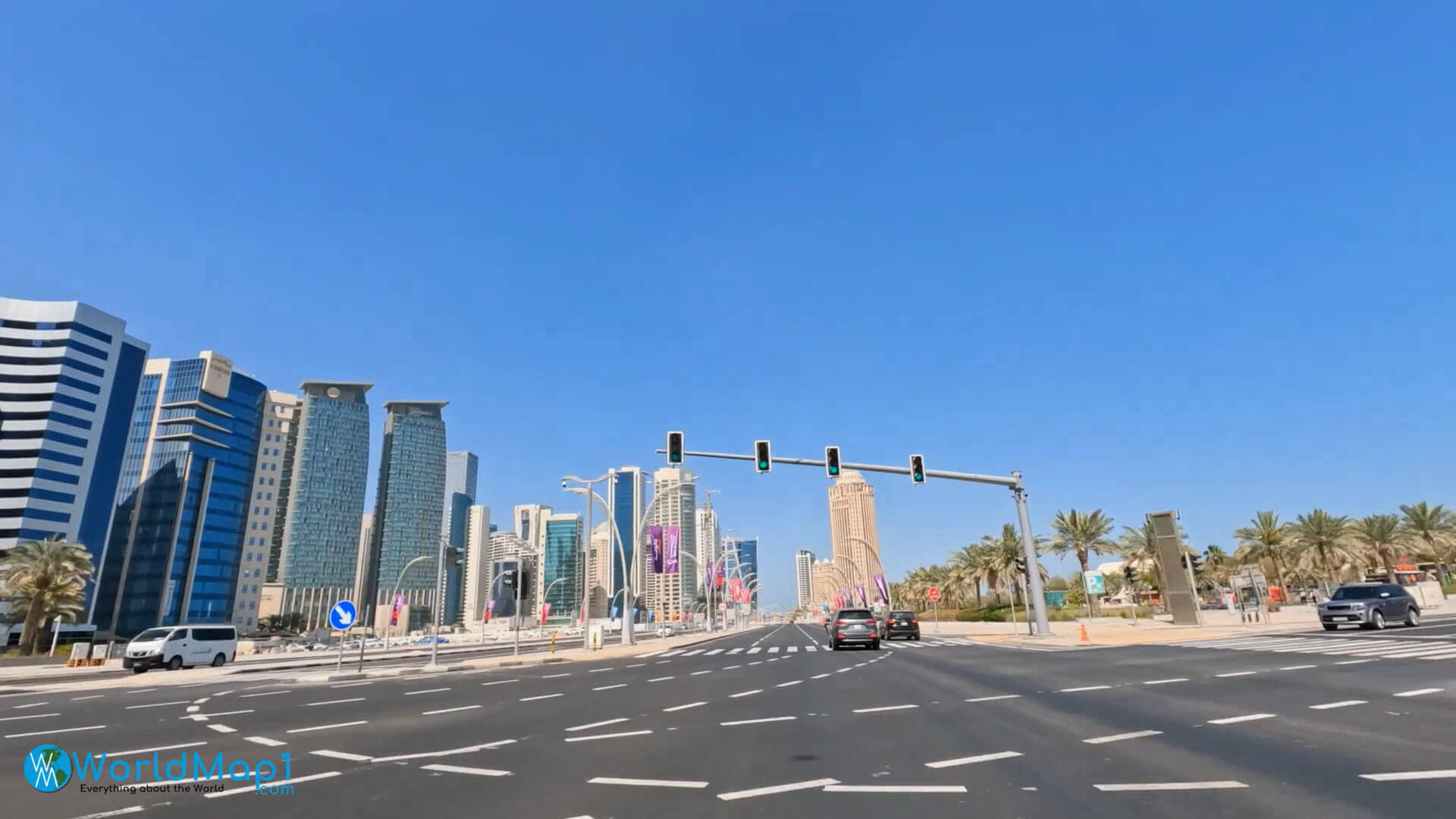
The population of Qatar is 2,995,469, mostly made up of expatriates. Most people in Qatar are Muslim and Arab; they mostly follow Sunni Islam (77% Sunni Muslim). However, there are also many other religions practiced in the country as well.
About 88% of Qatari citizens are Sunni Muslims while 12% follow Shia Islam and various other religious practices (Christianity, Buddhism).
How many languages are spoken in Qatar
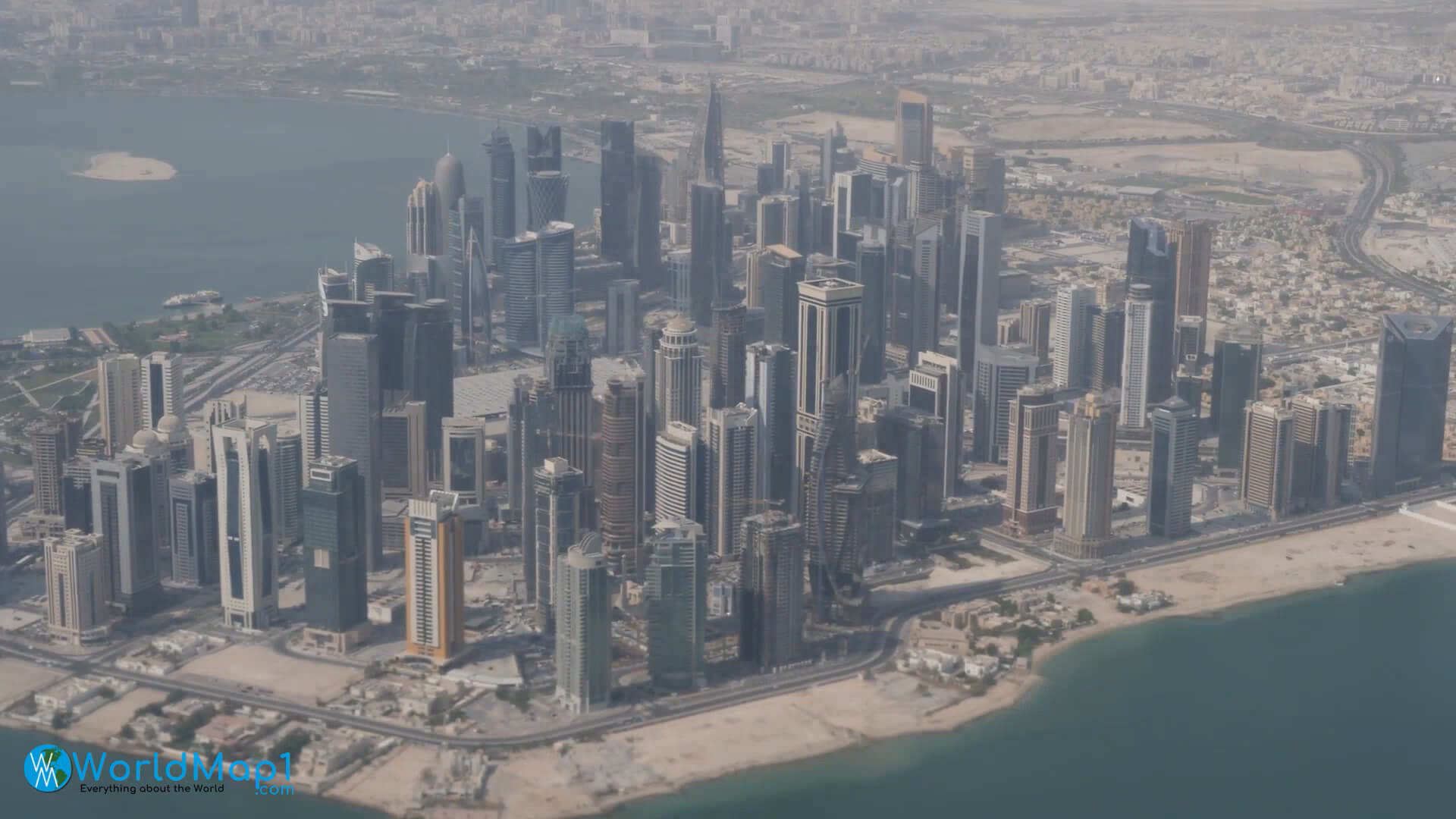
Arabic is the official language of Qatar, and is spoken by over 90% of its residents. English and French are also widely spoken in the country.
Urdu, a language common in South Asia, is also commonly used by many people from the Indian subcontinent.
Russian is another popular language; it's often heard around Doha's international airport due to a large number of expats from Russia living there.
What is the History of Qatar
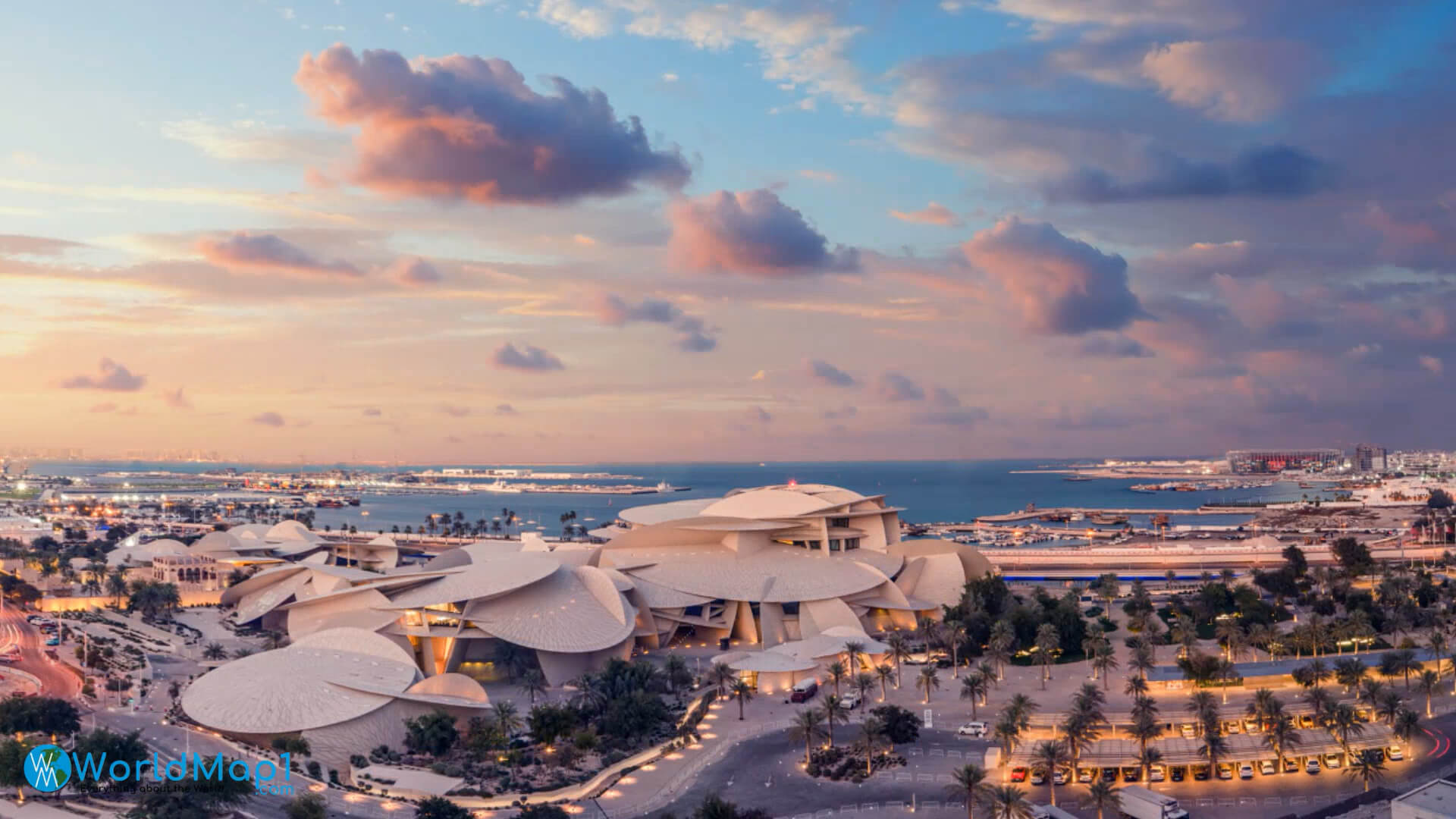
The Arabian Peninsula was known to Europeans as Arabia until the nineteenth century when it was gradually incorporated into Arab lands following conquests by Muhammad bin Qasim in 711 AD and then expanded by subsequent rulers such as Mansur bin Lu'lu', who conquered Doha in 1472 AD.
Some areas remained independent, including Al-Khor on Bahrain Island and some parts of eastern Arabia such as Fujeirah Island; these were collectively known as Bahrein Islands prior to being absorbed into modern-day Kuwait in 1961 after being captured by Britain during World War II. The country was ruled by the Al Thani family from 1868 until 1971 when it gained independence from Great Britain. It was also ruled by the Ottomans and Saudis during this time period.
Qatar is home to many monuments and ancient ruins that show its rich history, including several mosques and museum sites that showcase artifacts from all three ruling countries.
What is the Geography of Qatar
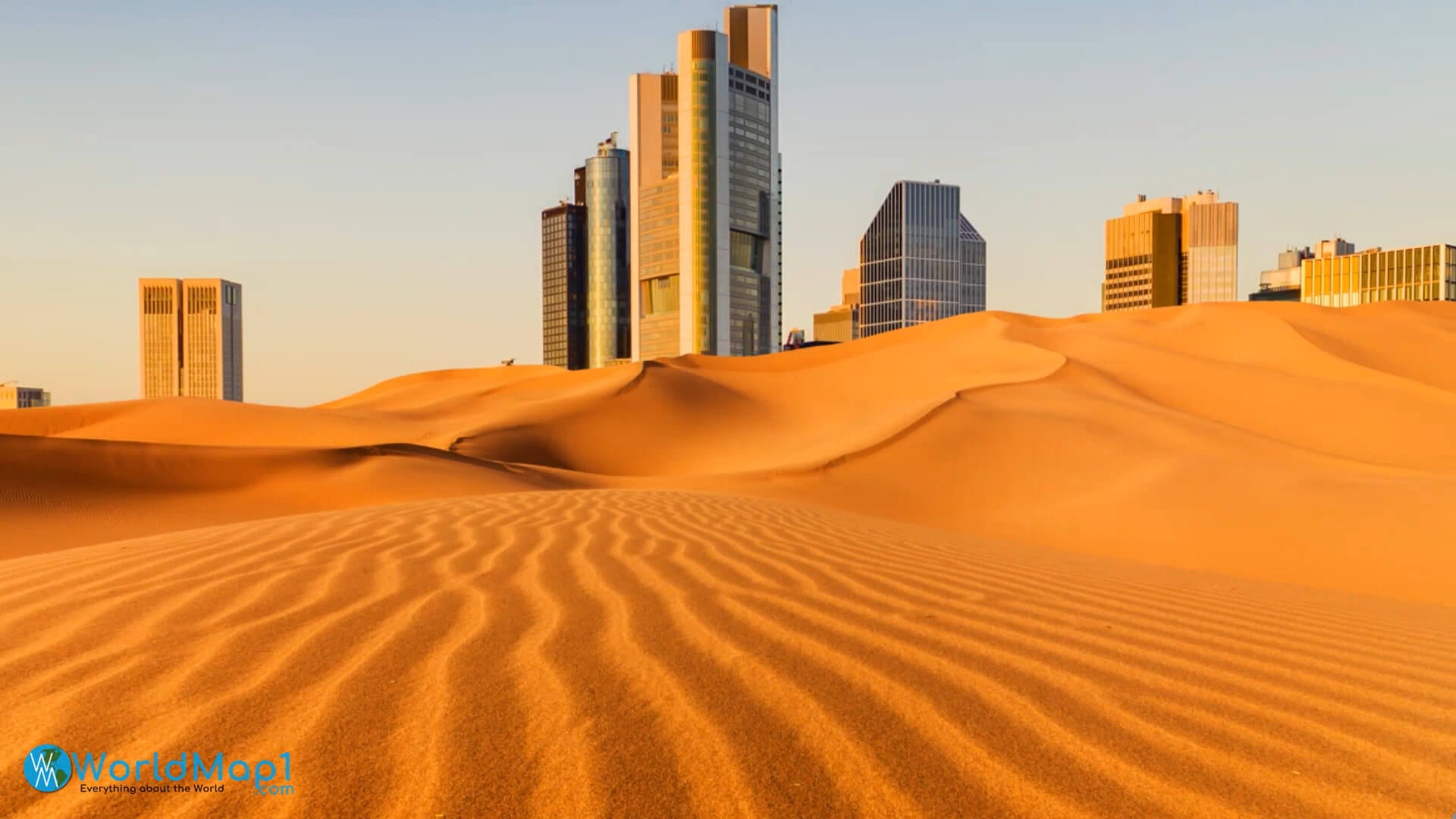
Qatar is a sovereign Arab state in Western Asia, occupying the small Qatar Peninsula on the northeasterly coast of the larger Arabian Peninsula. It is bordered by Saudi Arabia to the south and east, with the rest of its territory surrounded by the Persian Gulf. The country has an estimated population of 2 million people
Qatar is one of two de facto independent states within the peninsula on which it borders Bahrain; it also borders Saudi Arabia.
The State of Qatar has vast natural gas reserves and some oil reserves, but only about 1% of the world's total hydrocarbon resources are currently exploited in this country. In addition to being an important producer and exporter of these products, Qatar has also become a leading supplier of liquefied natural gas (LNG).
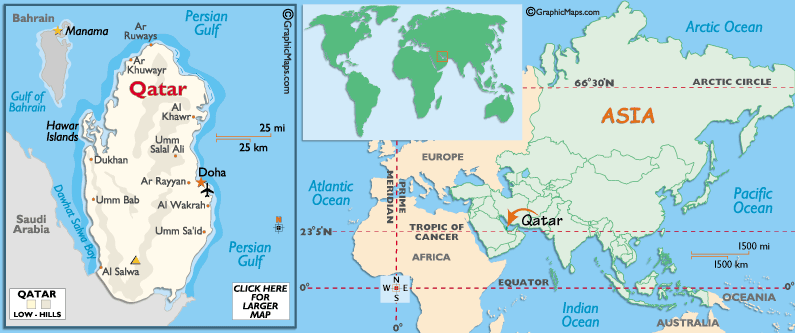
What is the weather and climate like in Qatar
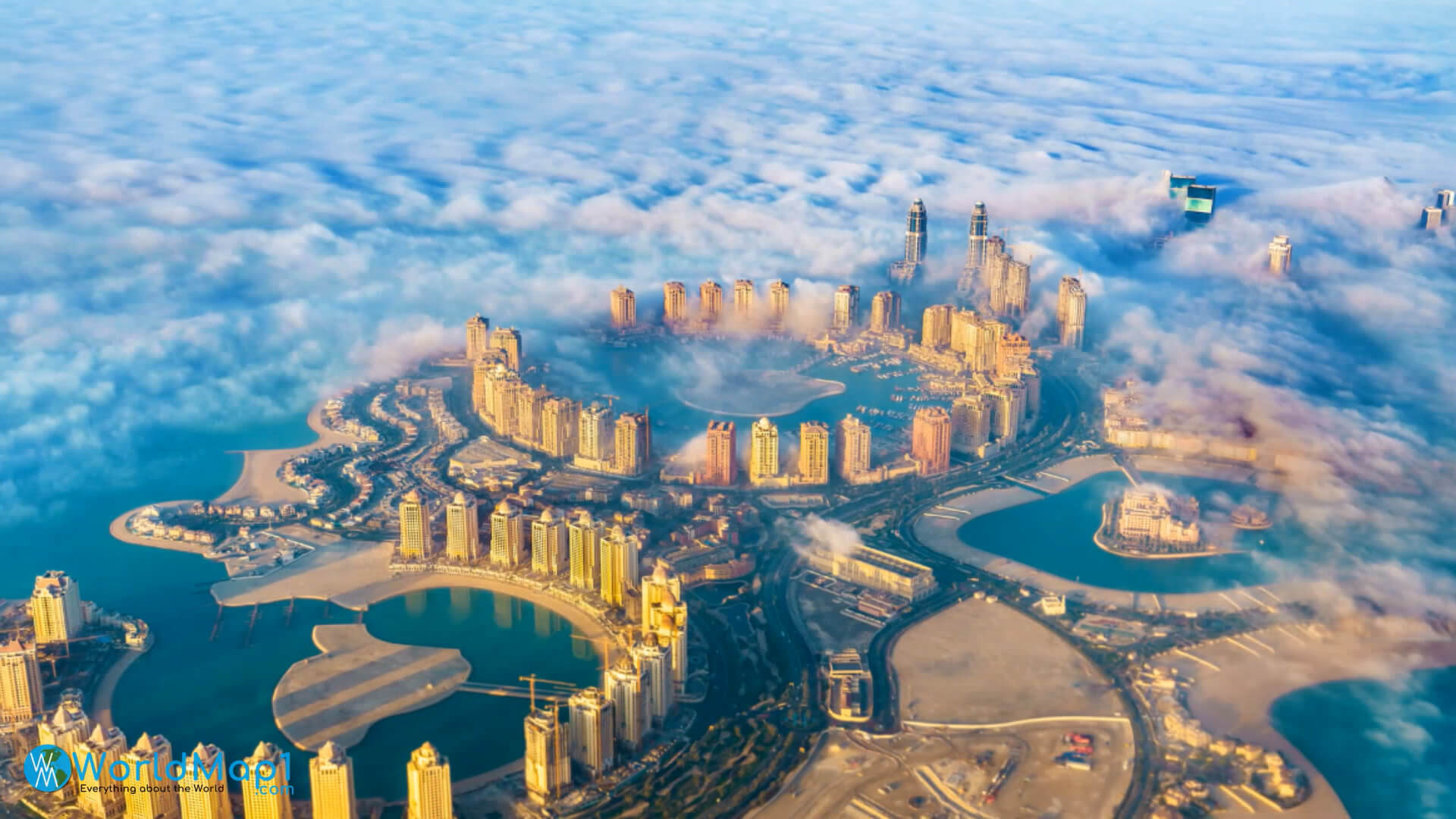
The climate of Qatar is characterized by hot, humid summers and mild winters. The temperature range in the country is from 15°C to 40°C (60°F to 104°F). The rainy season lasts from November to April, with December and January being the wettest months. The dry season lasts from May through October, with June being the hottest month on average with an average high temperature of 34°C (93°F).
The highest recorded temperature was 50.4 degrees Celsius in June 2003 at Dukhan.
Qatar Economy: What is the basic salary in Qatar
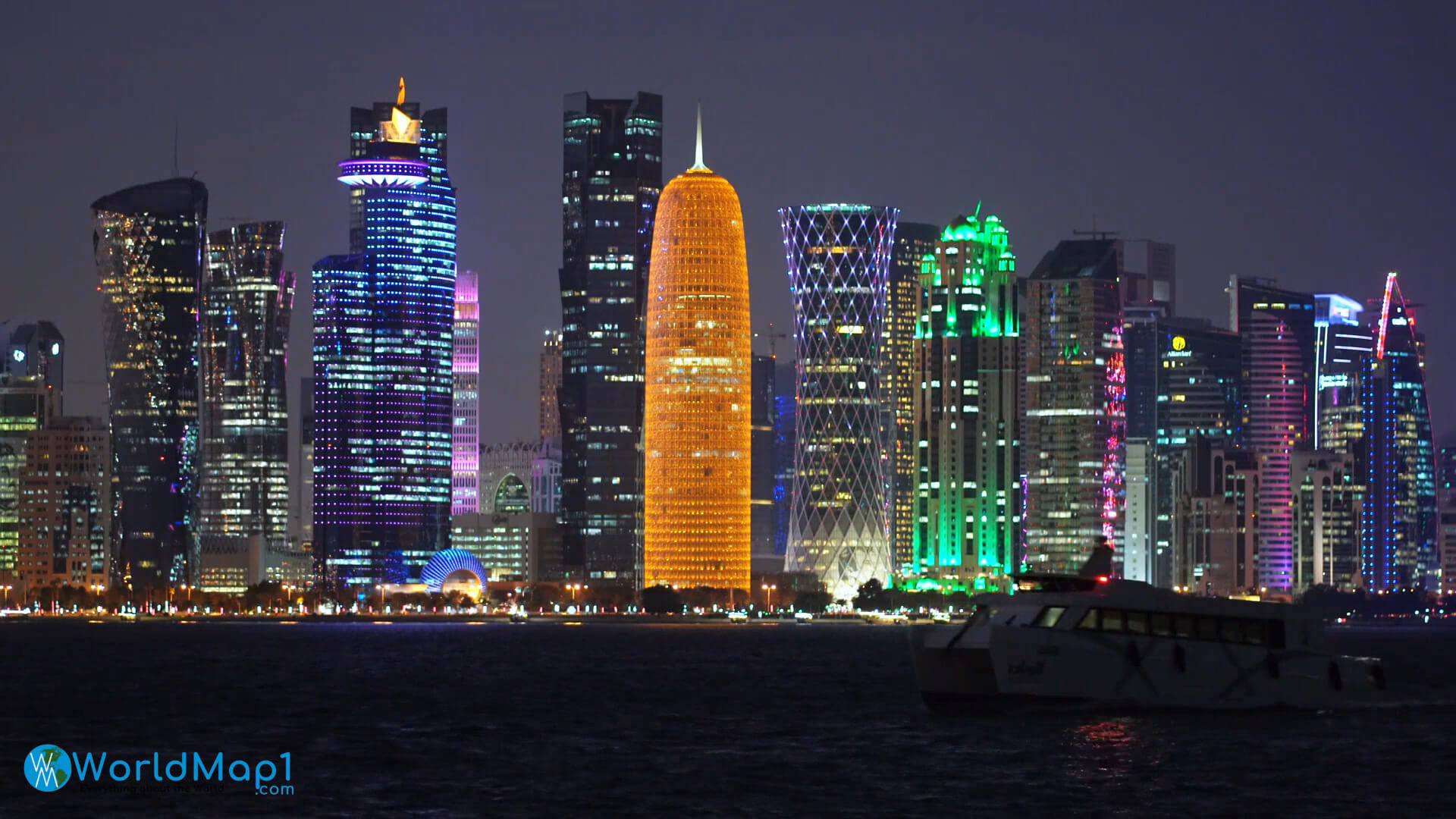
Qatar has a GDP per capita of $106,000, which is the highest in the world. The country's economy depends primarily on petroleum and natural gas production, processing, and export. Petroleum accounts for about 60% of Qatar's gross domestic product (GDP) and more than 85% of its export receipts. Petroleum has been produced since 1932, oil reserves were discovered in 1940, and oil revenue accounts for roughly 30% of total government revenue.
Qatar's economy is small compared with some other Arab states which are large producers or consumers of energy resources; however, its wealth is much greater than most other Arab countries due to high oil prices during recent years when they exceeded $60/barrel...
How many the legal working hours in Qatar
Legally, workers can only be asked to work for eight hours per day, or 48 hours per week. During the month of Ramadan, legal working hours are reduced to 36 hours per week, or 6 hours per day.
Does Qatar have good education
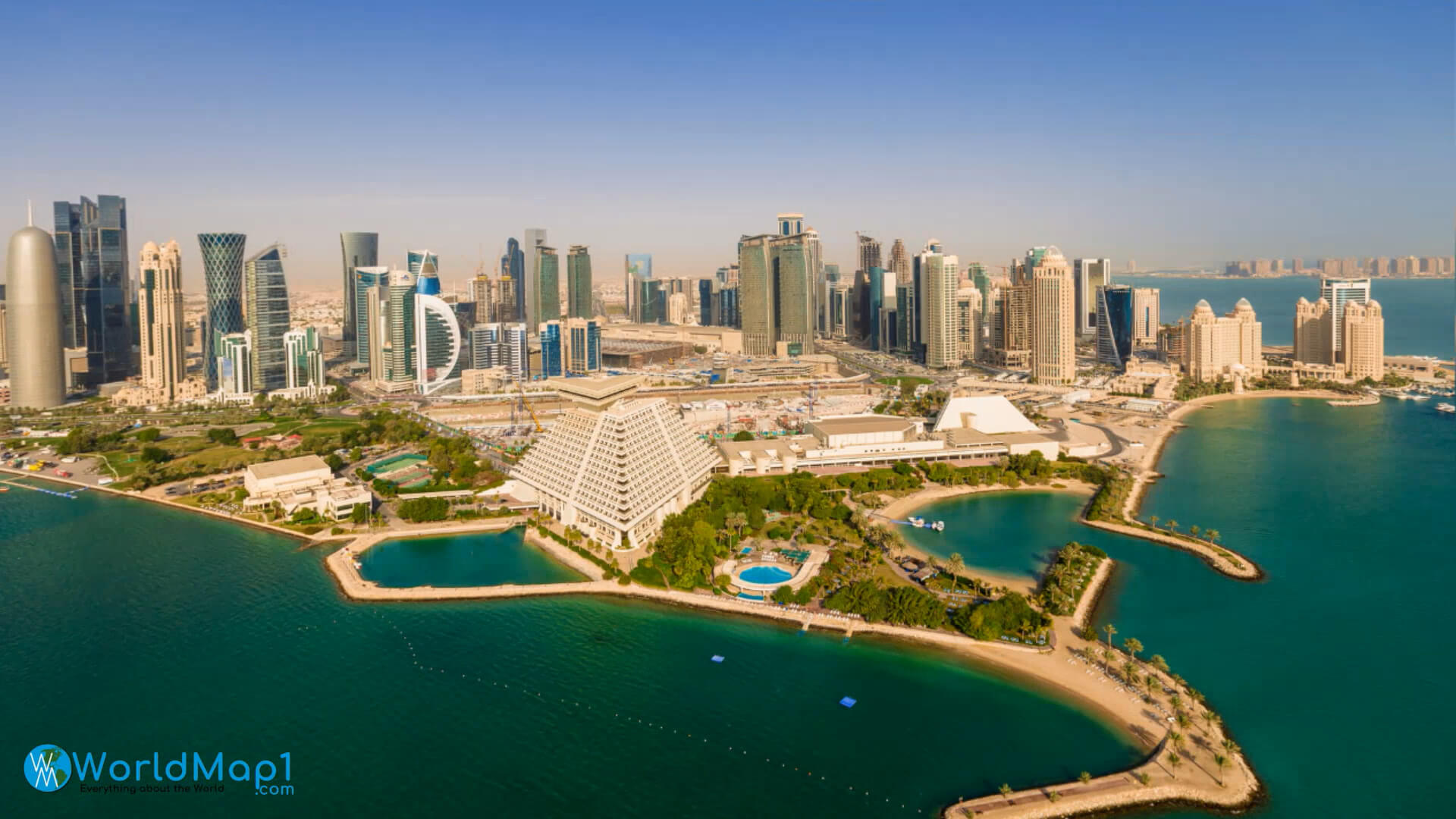
Education is important to the Qatari people, who are keen to uphold the country's high literacy rate. In 2016, Qatar ranked first in its region for the number of years spent in school by people aged 25-64; 97 percent of this group had at least some secondary education. The government has made it a priority to provide quality educational opportunities for each and every citizen.
Qatar has several universities and colleges that offer degrees from bachelor's to master's level and up through doctoral programs. These include Qatar University (founded in 1968), Northwestern University (1995), and Weill Cornell Medical College (2002).
The Ministry of Education provides free education at all levels—elementary school through university—and tuition is often paid by employers as part of their contracts with employees. Adult education classes are also available at no cost to anyone over 18 years old who wishes to learn English or other languages such as French or Arabic
Universities and Colleges
Qatar University, founded in 1973 as Qatar's first university, is a state-funded institution with several campuses. It serves more than 40,000 students across its six colleges and offers degrees in both traditional academic fields and technical specialties. The Petroleum Institute (PI), established in 1974, trains petroleum engineers and scientists at the bachelor's level and has become an important resource for industry professionals seeking continuing education in their fields. New York Institute of Technology (NYIT) opened its Doha campus in 2005; it features top-notch facilities such as an auditorium that can seat 1,200 people at once or two smaller classrooms for large groups.
Qatar is a nice country with a nice history and good schools. It's one of the few countries in the Middle East that has no problems with terrorism, so you don't have to worry about anything like that here. There are also plenty of places to eat, shop, and drink coffee if you're hungry or thirsty during your visit!
Politics: Is Qatar a democracy or monarchy
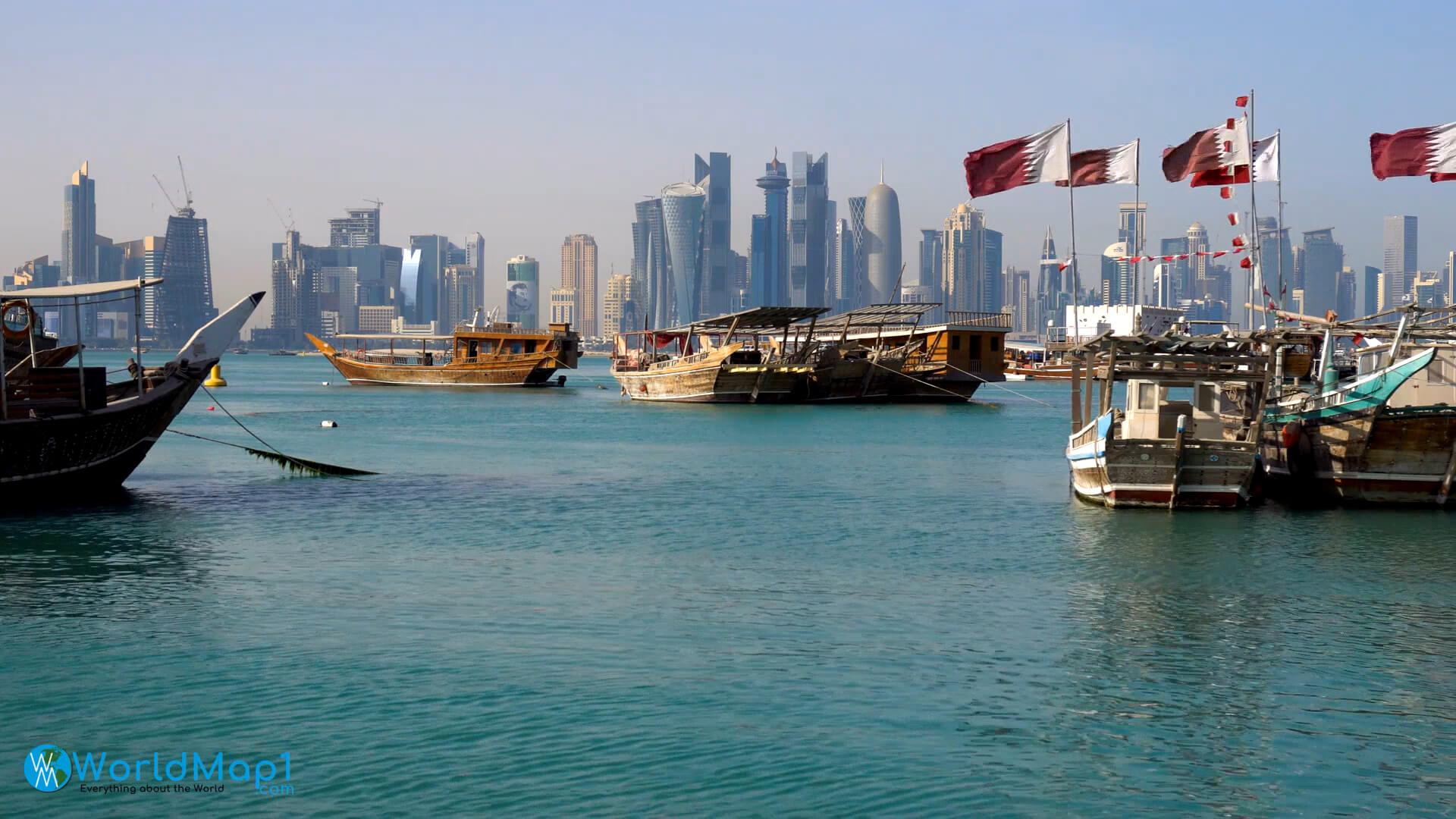
Qatar is a constitutional monarchy with a government based on the constitution of 1876. The emir is the head of state and appoints the prime minister. The emir can also dissolve parliament, call for new elections, and decide on matters concerning national security.
The prime minister is appointed by the emir and decides on who will make up Qatar's cabinet. He or she can also propose laws to parliament that do not contradict Islam.
Sport
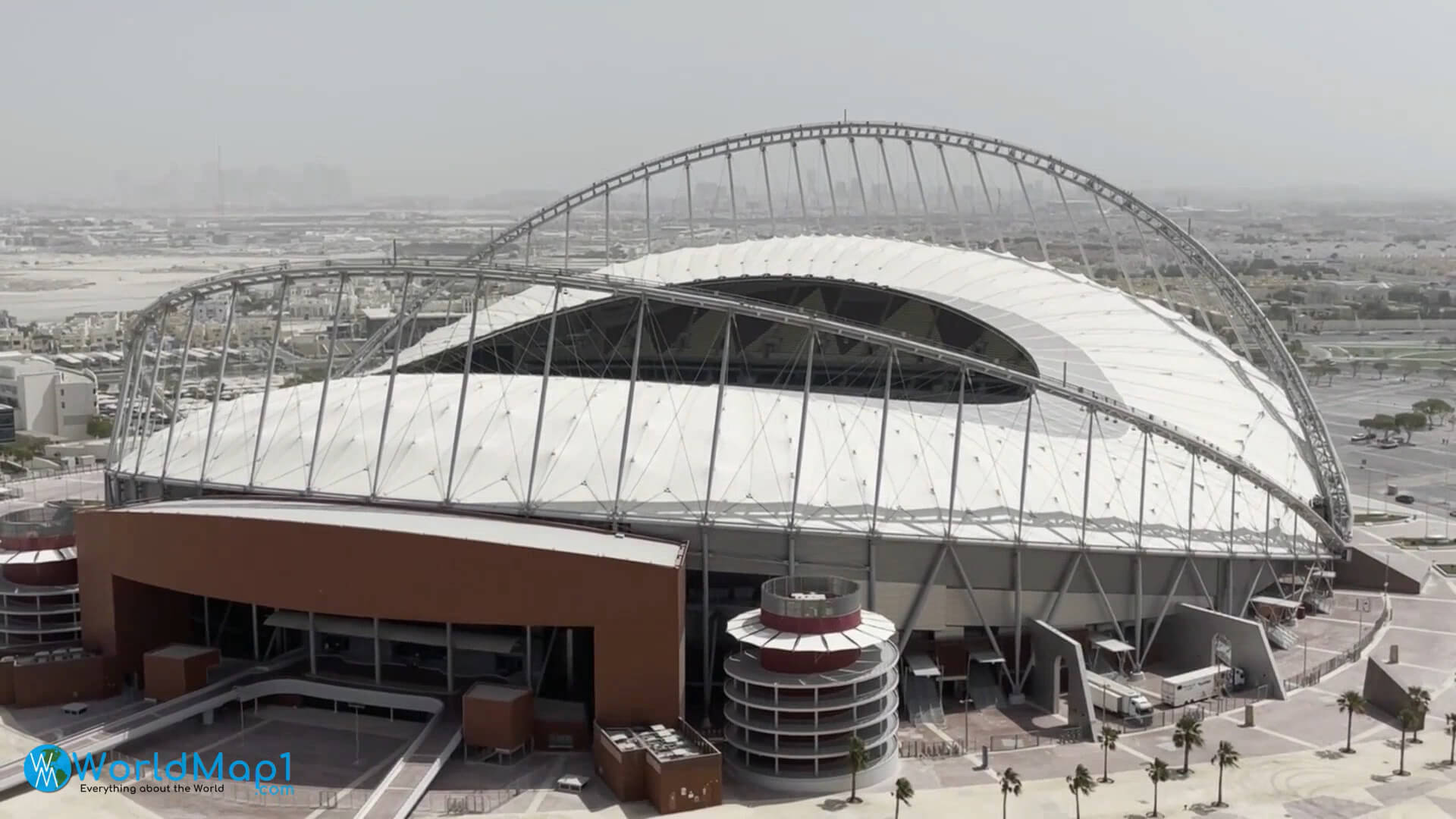
Qatar is a popular destination for sports fans, hosting some of the world's biggest sporting events. The 2022 FIFA World Cup will be held in Qatar, and it is also the host country of the 2019 AFC Asian Cup. There are many professional sports teams in Qatar that play in international leagues as well as national leagues.
Events
The Qatar Tennis Open, one of four prestigious ATP World Tour 500 tournaments played on hard courts every February at Khalifa International Tennis Complex—one of two stadiums built for hosting games during 2022 FIFA World Cup™ matches.
Cuisine: What is the famous Qatari Dishes
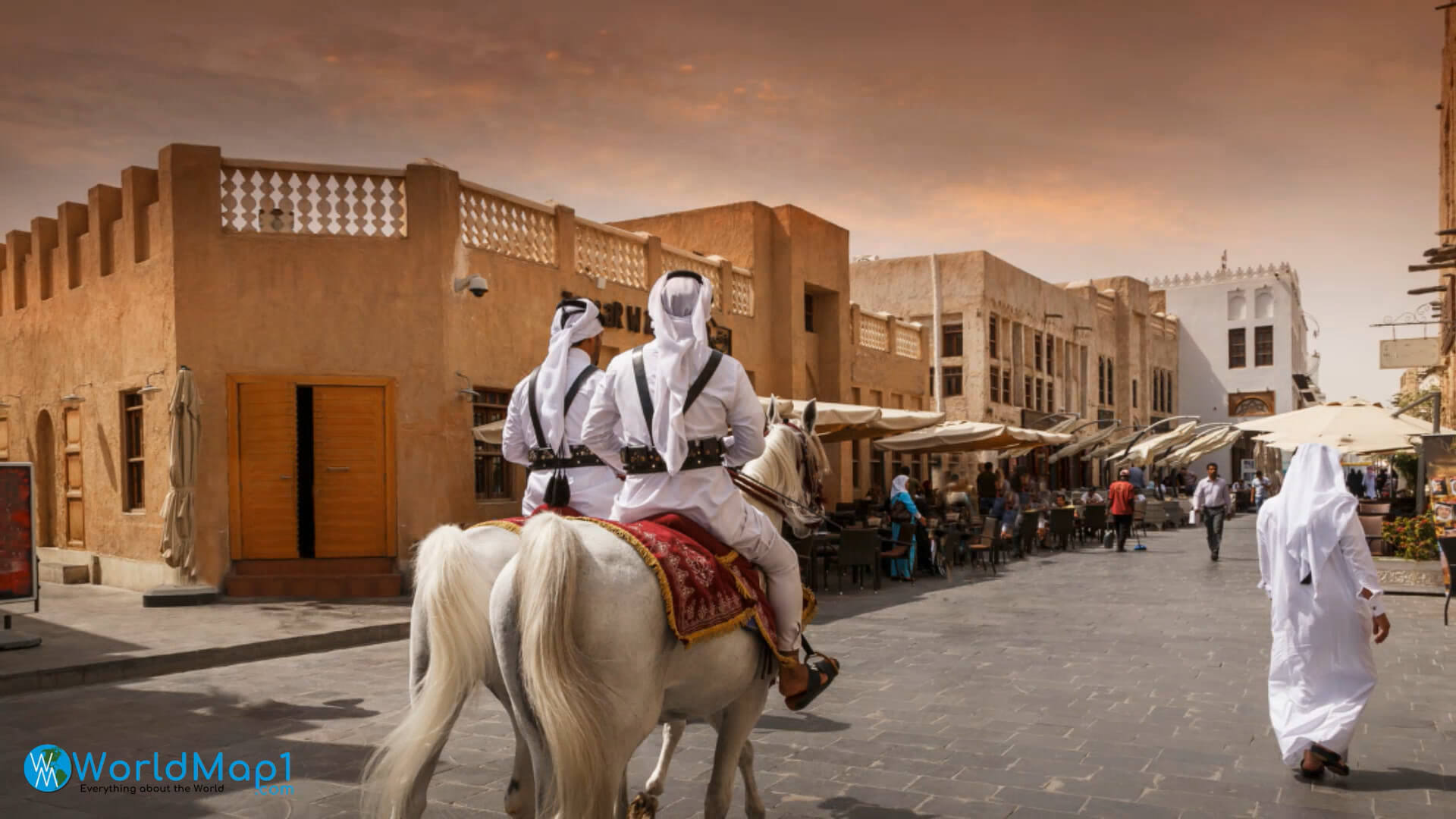
Qatar is a small country with the majority of the population being expats. The cuisine of Qatar is a fusion of traditional Arab and South Asian cuisine. The cuisines vary depending on which part of the country you are in. Here's what you need to know about Qatari food before you go:
Halal food Halal food means that no pork or alcohol has been involved in preparing it, so most restaurants serve halal options. You can also find restaurants serving local dishes like kabsa, shawarma, falafel and hummus.
Local dishes worth trying while visiting Qatar include:
Khubz - Arabic flatbreads served with olive oil or butter to dip in various sauces such as garlic sauce (tahini), yogurt sauce (laban) or pickled lemon juice; these delicacies can be eaten as appetizers or main courses depending on how many people want to share one portion together at once!
Kuafta - minced meat cooked with onions until browned then shaped into balls before being cooked slowly for several hours until tenderized inside out with aromatic herbs like parsley leaves; usually served over rice accompanied by fried eggplant slices called baba ghanouj."
Transport
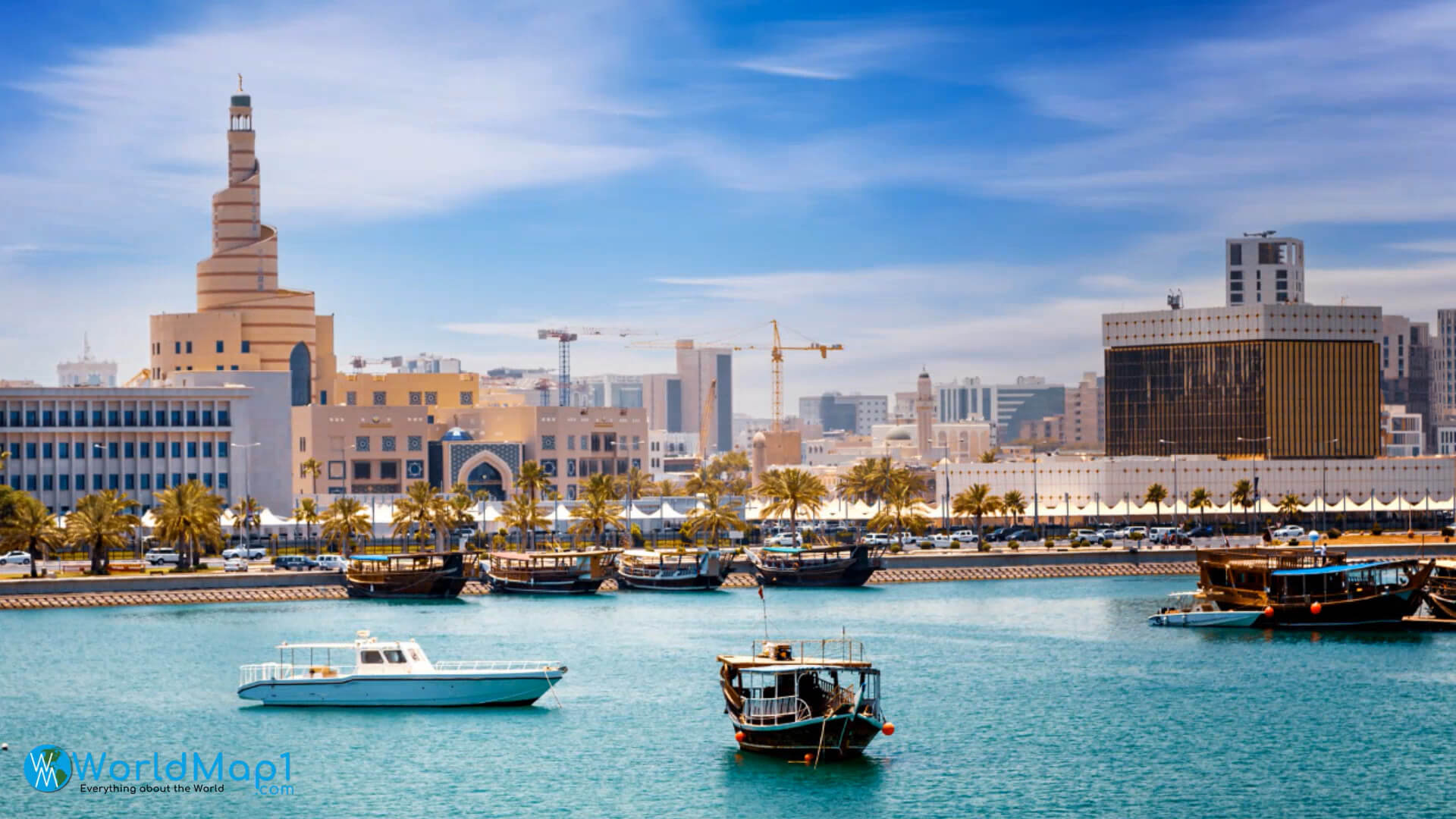
You can reach Qatar by air, land or sea. The main international airport is Doha International Airport. It welcomes more than 18 million passengers each year and is one of the largest airports in the Middle East, with a capacity of over 50 million passengers per year.
There are also several other airports in the country, including:
Hamad International Airport, which serves as an important transportation hub for people travelling around Doha and beyond;
Al Wakrah; Al Rayyan; Umm Slal
What is Qatar's Healthcare System Like
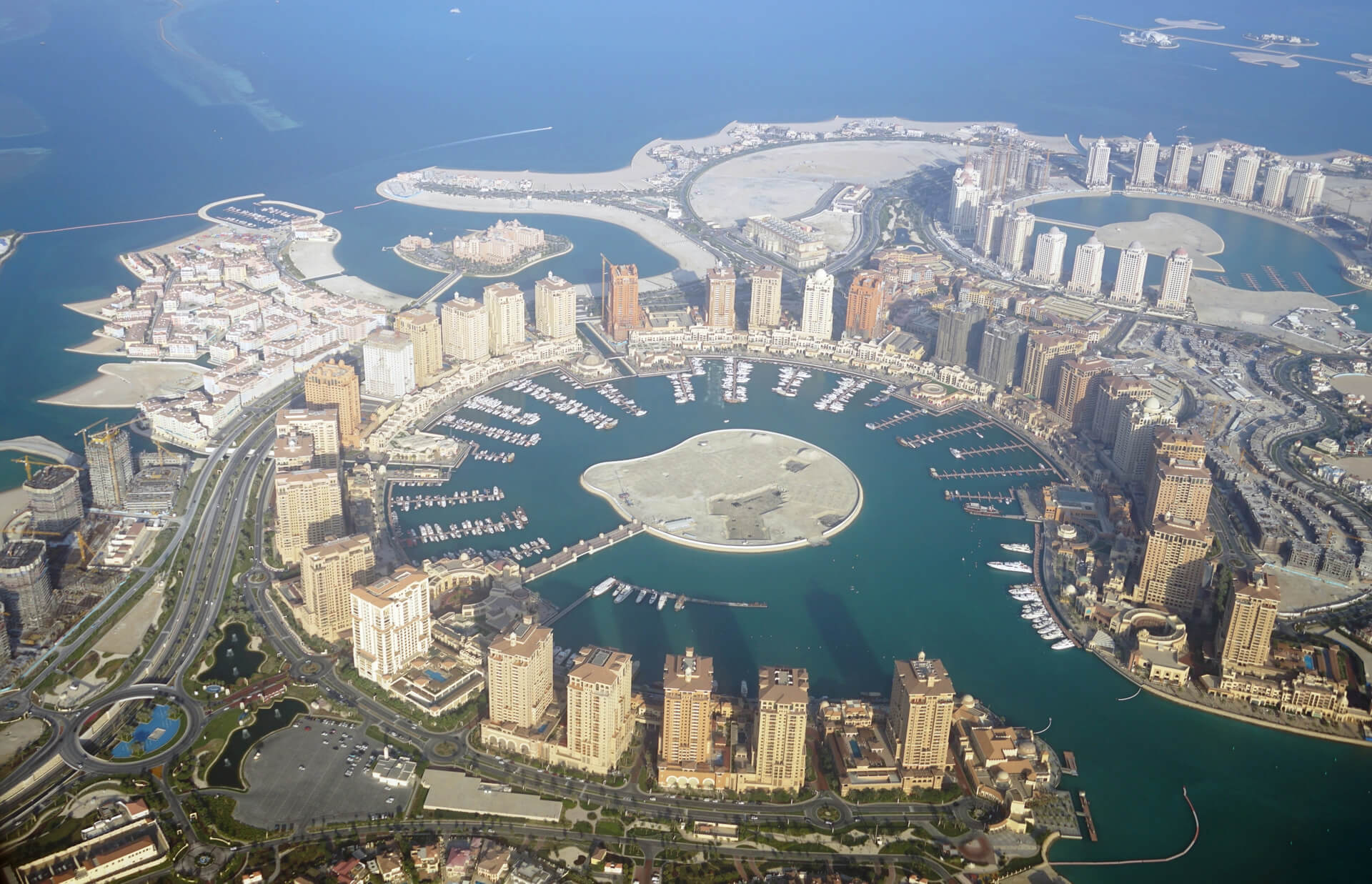
Qatar's health system ranked first in the Middle East and 13th internationally on the 2017 Legatum Prosperity Index. It is composed of free public healthcare and private healthcare, used mainly by ex-pats who choose to live and work in the country.
Qatar has a high standard of health care, and its healthcare system is well-developed. Qatar's infant mortality rate is low: 7 deaths per 1,000 live births. The life expectancy rate in Qatar is 77 years old.
Qatar has a high literacy rate: 99% of people over 15 years old can read and write well enough to perform everyday tasks. In addition, fewer than 2% of the population has HIV/AIDS (the disease that causes AIDS).
Can anyone access healthcare in Qatar
Yes, anyone with a health card can obtain healthcare in Qatar. Residents must present a valid ID and residence permit to apply for a health card. All residents with a valid ID and residence permit, including ex-pats, can access public healthcare in Qatar. You have two options for places to do this:
- Primary healthcare centers - You can easily inquire how to get a health card.
- Online
Temporary visitors or tourists often opt for private health insurance to avail of medical services, or they have to pay for private treatment.
Energy
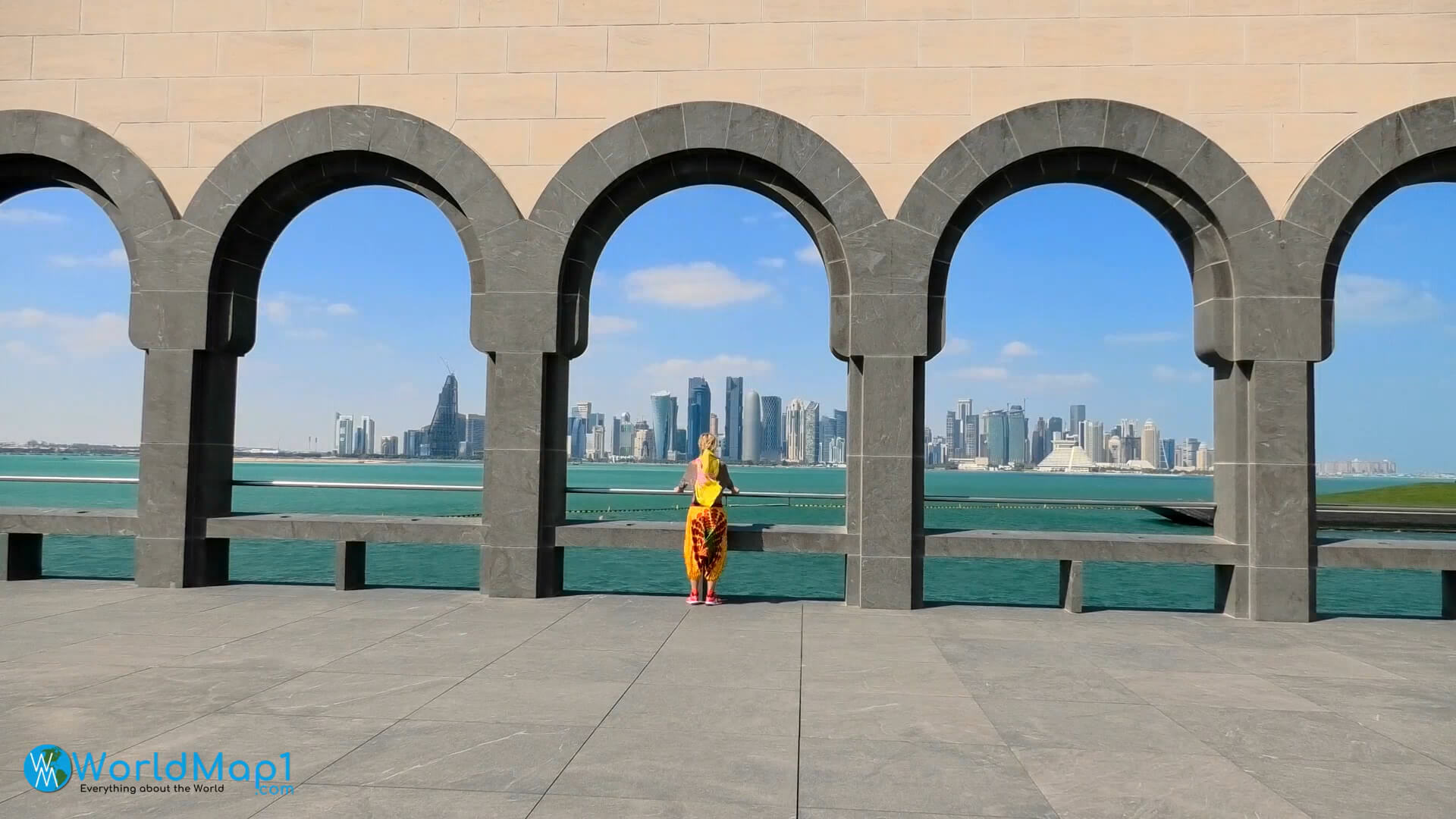
Qatar is a major exporter of natural gas and petroleum, producing about three-quarters of its own needs. The country is the world's largest exporter of liquefied natural gas (LNG), with exports consisting mostly of long-term contracts to customers in Asia. Qatar has the third highest proven natural gas reserves, after Russia and Iran, according to BP Statistical Review 2017.
Qatar Petroleum (QP) is the state oil company responsible for exploration and production activities in Qatar. QP and international oil companies are currently engaged in developing several large projects that are expected to increase production capacity over the next several years from current levels above 2 million b/d to 3 million b/d by 2020–21.
Notable People: What are the Most Famous People from Qatar
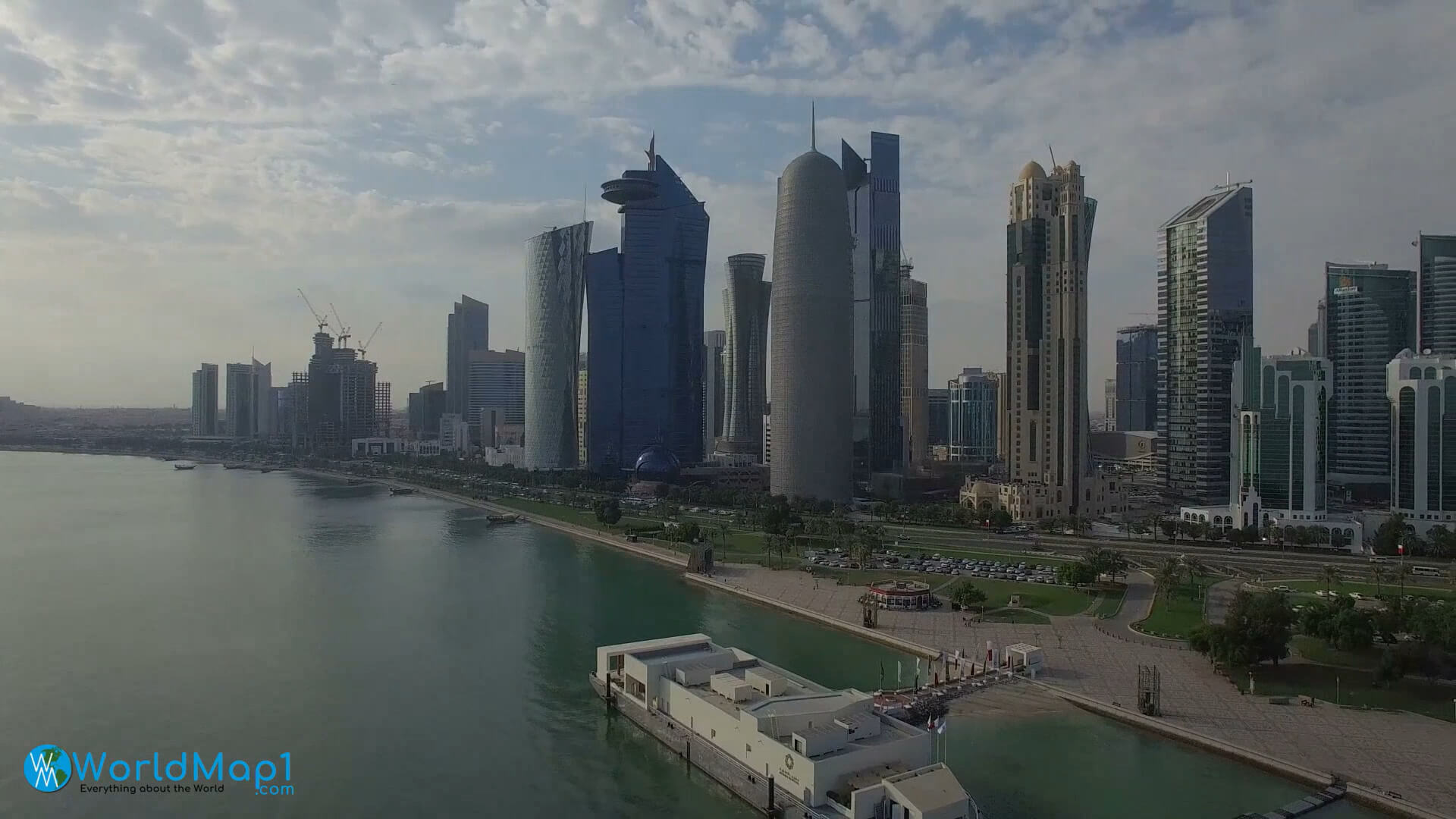 Qatar is home to many notable people, including:
Qatar is home to many notable people, including:
Sheikh Tamim bin Hamad Al Thani, the Emir of Qatar. He is the current leader of the country and a prominent figure in international politics.
Sheikh Jassim bin Hamad Al Thani, former Prime Minister and President of Qatar. He was also one of the founding fathers of modern Qatar.
Sheikh Abdullah bin Jassim Al Thani, a former Foreign Minister and Prime Minister who served under both Hamad Bin Khalifa and Abdullah Bin Khalifa during their reigns as emirs. He was also considered one of the leading members of Qatar's ruling family during that time period.
Sheikh Fahad bin Jassim Al Thani (1941 – 2019), a member of parliament who has held numerous positions within Qatari politics since 1986 when he joined parliament as an appointed member through 2022 when he decided not to run again due to health reasons related with diabetes mellitus type 2; Fahad then became part owner at Daru Energy Limited which specializes in oil exploration activities throughout Africa & Asia Pacific regions while keeping his position as chairman at Council on Islamic Education USA (2010-2019).
Please view more Qatar Cities Aerial Views, Map and Photos
A Collection of Qatar Maps Qatar Free Printable Map Where is Located Qatar in the World Arab Museum Of Modern Art in Qatar
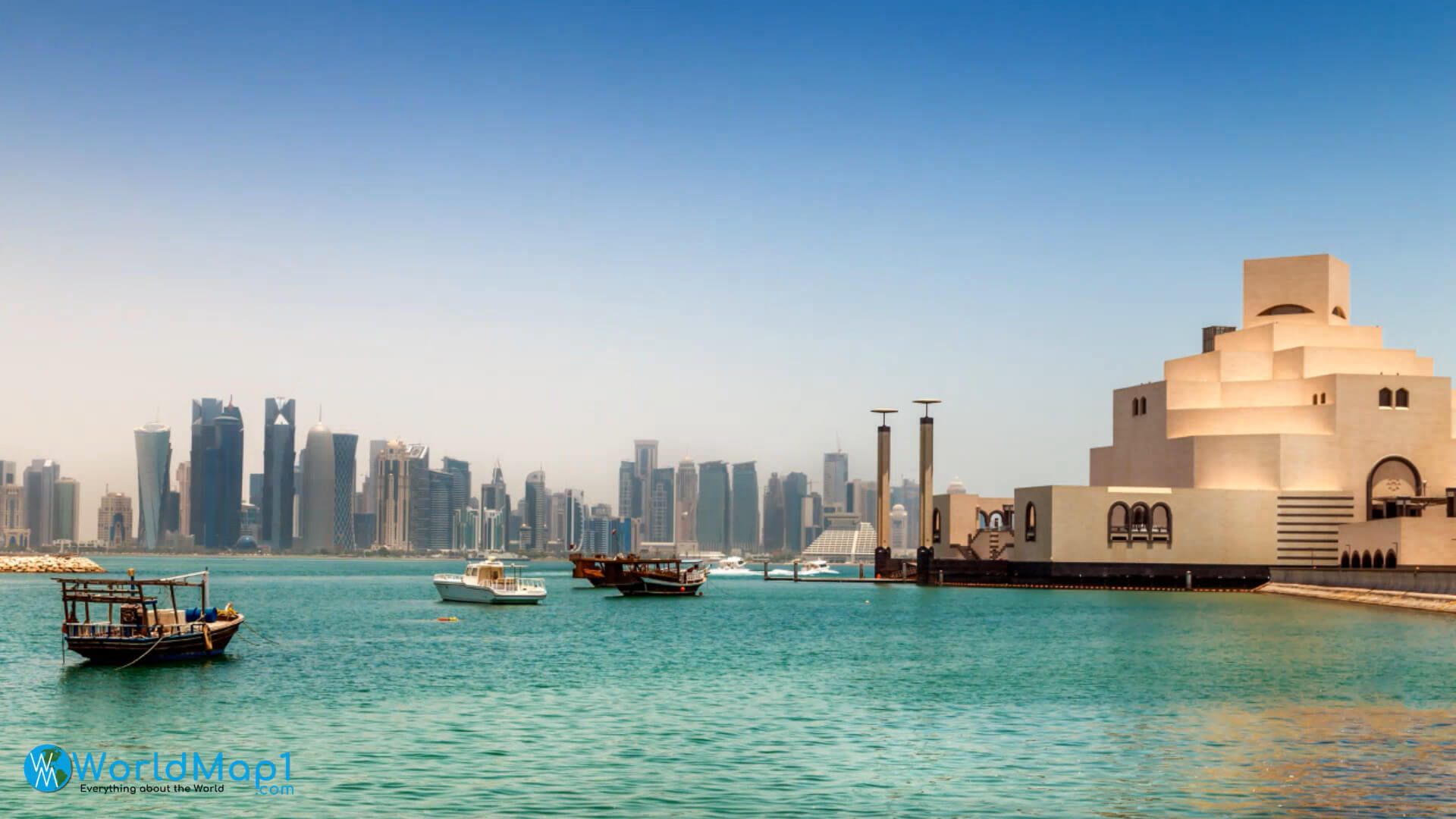
Boats in Doha
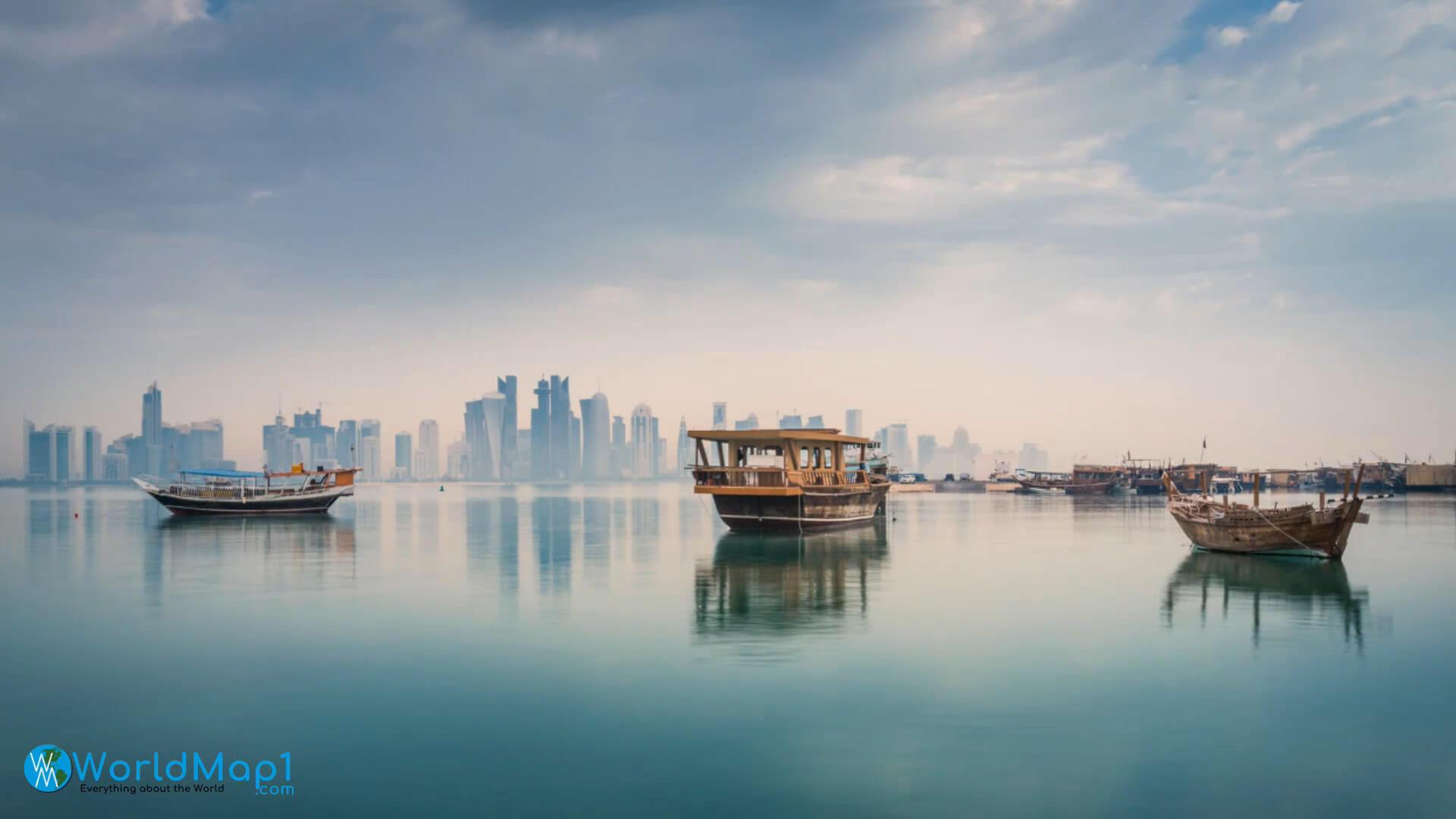
Doha Travel Guide
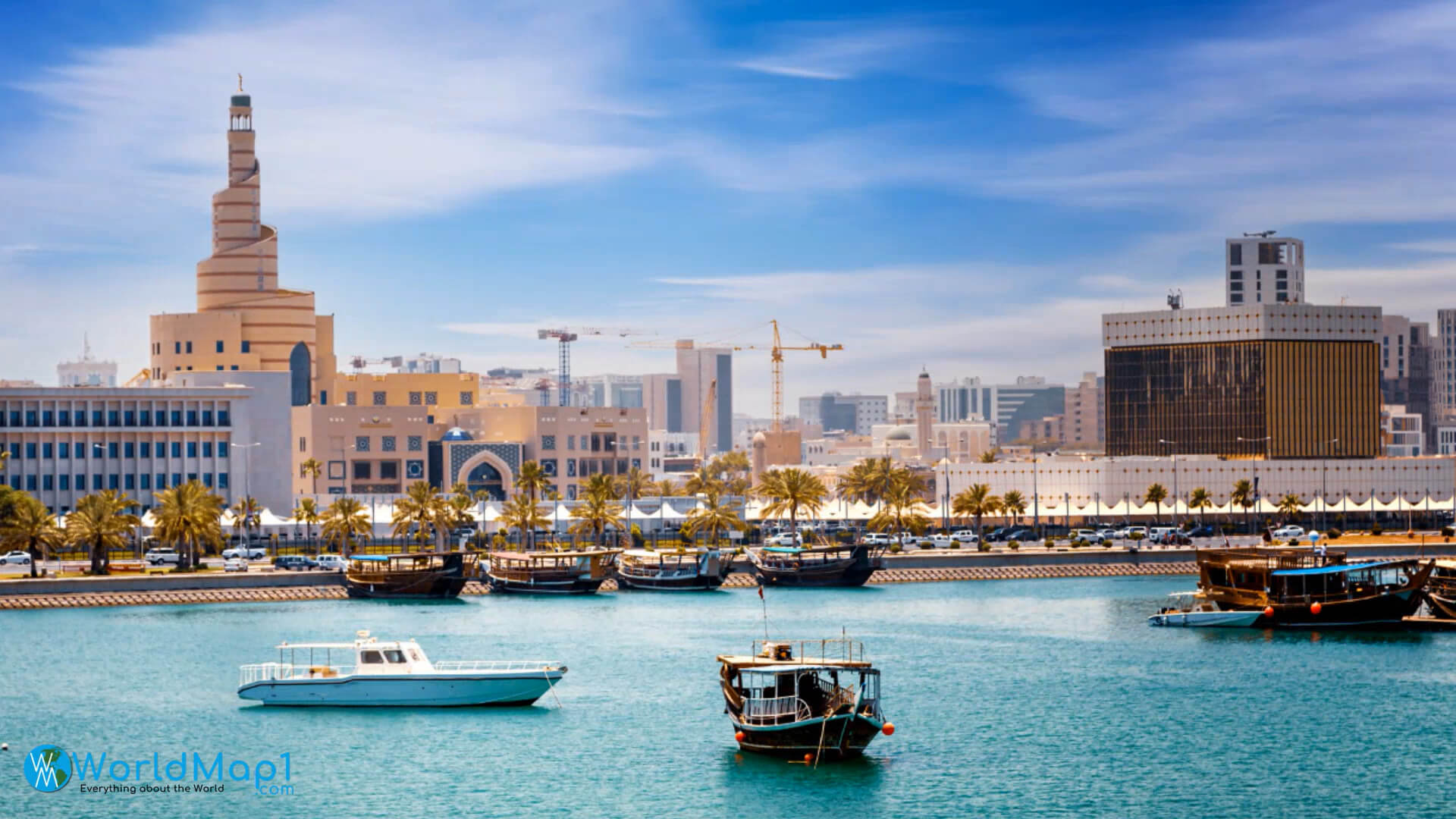
Skylines in Doha
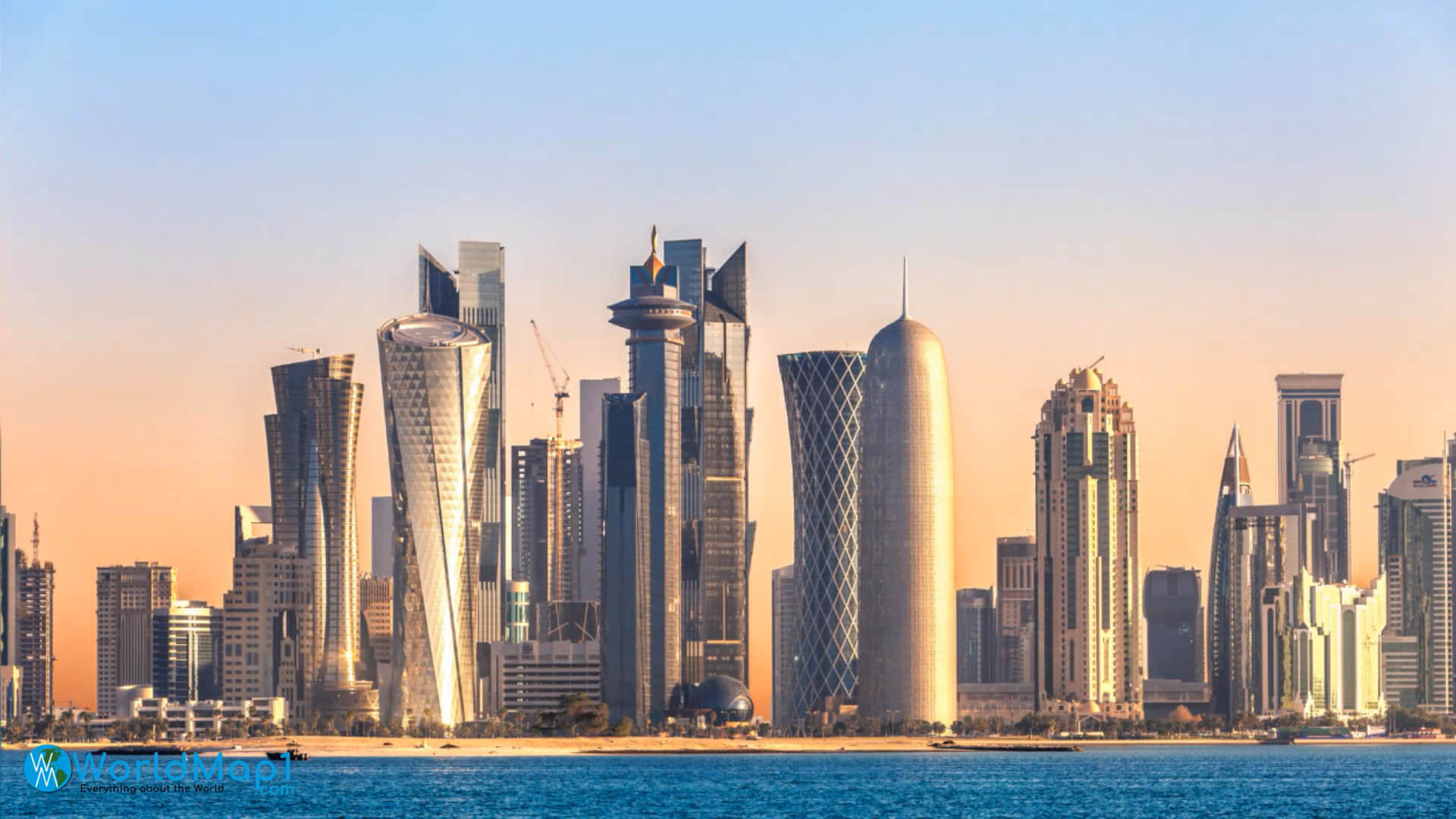
More Qatar Maps, and Qatar Images from Space

 The name Qatar is derived from the Arabic name of the country, ad-dawhah literally meaning "the big tree", though it could also refer to a species of local trees that resemble the tamarisk (tamarix species).
The name Qatar is derived from the Arabic name of the country, ad-dawhah literally meaning "the big tree", though it could also refer to a species of local trees that resemble the tamarisk (tamarix species).  You'll find some of Qatar's best beaches in the following destinations:
You'll find some of Qatar's best beaches in the following destinations:  The population of Qatar is 2,995,469, mostly made up of expatriates. Most people in Qatar are Muslim and Arab; they mostly follow Sunni Islam (77% Sunni Muslim). However, there are also many other religions practiced in the country as well.
The population of Qatar is 2,995,469, mostly made up of expatriates. Most people in Qatar are Muslim and Arab; they mostly follow Sunni Islam (77% Sunni Muslim). However, there are also many other religions practiced in the country as well.  Arabic is the official language of Qatar, and is spoken by over 90% of its residents. English and French are also widely spoken in the country.
Arabic is the official language of Qatar, and is spoken by over 90% of its residents. English and French are also widely spoken in the country.  The Arabian Peninsula was known to Europeans as Arabia until the nineteenth century when it was gradually incorporated into Arab lands following conquests by Muhammad bin Qasim in 711 AD and then expanded by subsequent rulers such as Mansur bin Lu'lu', who conquered Doha in 1472 AD.
The Arabian Peninsula was known to Europeans as Arabia until the nineteenth century when it was gradually incorporated into Arab lands following conquests by Muhammad bin Qasim in 711 AD and then expanded by subsequent rulers such as Mansur bin Lu'lu', who conquered Doha in 1472 AD.  Qatar is a sovereign Arab state in Western Asia, occupying the small Qatar Peninsula on the northeasterly coast of the larger Arabian Peninsula. It is bordered by Saudi Arabia to the south and east, with the rest of its territory surrounded by the Persian Gulf. The country has an estimated population of 2 million people
Qatar is a sovereign Arab state in Western Asia, occupying the small Qatar Peninsula on the northeasterly coast of the larger Arabian Peninsula. It is bordered by Saudi Arabia to the south and east, with the rest of its territory surrounded by the Persian Gulf. The country has an estimated population of 2 million people 
 The climate of Qatar is characterized by hot, humid summers and mild winters. The temperature range in the country is from 15°C to 40°C (60°F to 104°F). The rainy season lasts from November to April, with December and January being the wettest months. The dry season lasts from May through October, with June being the hottest month on average with an average high temperature of 34°C (93°F).
The climate of Qatar is characterized by hot, humid summers and mild winters. The temperature range in the country is from 15°C to 40°C (60°F to 104°F). The rainy season lasts from November to April, with December and January being the wettest months. The dry season lasts from May through October, with June being the hottest month on average with an average high temperature of 34°C (93°F).  Qatar has a GDP per capita of $106,000, which is the highest in the world. The country's economy depends primarily on petroleum and natural gas production, processing, and export. Petroleum accounts for about 60% of Qatar's gross domestic product (GDP) and more than 85% of its export receipts. Petroleum has been produced since 1932, oil reserves were discovered in 1940, and oil revenue accounts for roughly 30% of total government revenue.
Qatar has a GDP per capita of $106,000, which is the highest in the world. The country's economy depends primarily on petroleum and natural gas production, processing, and export. Petroleum accounts for about 60% of Qatar's gross domestic product (GDP) and more than 85% of its export receipts. Petroleum has been produced since 1932, oil reserves were discovered in 1940, and oil revenue accounts for roughly 30% of total government revenue.  Education is important to the Qatari people, who are keen to uphold the country's high literacy rate. In 2016, Qatar ranked first in its region for the number of years spent in school by people aged 25-64; 97 percent of this group had at least some secondary education. The government has made it a priority to provide quality educational opportunities for each and every citizen.
Education is important to the Qatari people, who are keen to uphold the country's high literacy rate. In 2016, Qatar ranked first in its region for the number of years spent in school by people aged 25-64; 97 percent of this group had at least some secondary education. The government has made it a priority to provide quality educational opportunities for each and every citizen.  Qatar is a constitutional monarchy with a government based on the constitution of 1876. The emir is the head of state and appoints the prime minister. The emir can also dissolve parliament, call for new elections, and decide on matters concerning national security.
Qatar is a constitutional monarchy with a government based on the constitution of 1876. The emir is the head of state and appoints the prime minister. The emir can also dissolve parliament, call for new elections, and decide on matters concerning national security.  Qatar is a popular destination for sports fans, hosting some of the world's biggest sporting events. The 2022 FIFA World Cup will be held in Qatar, and it is also the host country of the 2019 AFC Asian Cup. There are many professional sports teams in Qatar that play in international leagues as well as national leagues.
Qatar is a popular destination for sports fans, hosting some of the world's biggest sporting events. The 2022 FIFA World Cup will be held in Qatar, and it is also the host country of the 2019 AFC Asian Cup. There are many professional sports teams in Qatar that play in international leagues as well as national leagues.  Qatar is a small country with the majority of the population being expats. The cuisine of Qatar is a fusion of traditional Arab and South Asian cuisine. The cuisines vary depending on which part of the country you are in. Here's what you need to know about Qatari food before you go:
Qatar is a small country with the majority of the population being expats. The cuisine of Qatar is a fusion of traditional Arab and South Asian cuisine. The cuisines vary depending on which part of the country you are in. Here's what you need to know about Qatari food before you go:  You can reach Qatar by air, land or sea. The main international airport is Doha International Airport. It welcomes more than 18 million passengers each year and is one of the largest airports in the Middle East, with a capacity of over 50 million passengers per year.
You can reach Qatar by air, land or sea. The main international airport is Doha International Airport. It welcomes more than 18 million passengers each year and is one of the largest airports in the Middle East, with a capacity of over 50 million passengers per year.  Qatar's health system ranked first in the Middle East and 13th internationally on the 2017 Legatum Prosperity Index. It is composed of free public healthcare and private healthcare, used mainly by ex-pats who choose to live and work in the country.
Qatar's health system ranked first in the Middle East and 13th internationally on the 2017 Legatum Prosperity Index. It is composed of free public healthcare and private healthcare, used mainly by ex-pats who choose to live and work in the country.  Qatar is a major exporter of natural gas and petroleum, producing about three-quarters of its own needs. The country is the world's largest exporter of liquefied natural gas (LNG), with exports consisting mostly of long-term contracts to customers in Asia. Qatar has the third highest proven natural gas reserves, after Russia and Iran, according to BP Statistical Review 2017.
Qatar is a major exporter of natural gas and petroleum, producing about three-quarters of its own needs. The country is the world's largest exporter of liquefied natural gas (LNG), with exports consisting mostly of long-term contracts to customers in Asia. Qatar has the third highest proven natural gas reserves, after Russia and Iran, according to BP Statistical Review 2017.  Qatar is home to many notable people, including:
Qatar is home to many notable people, including: 



